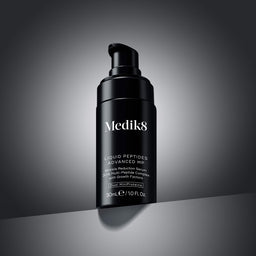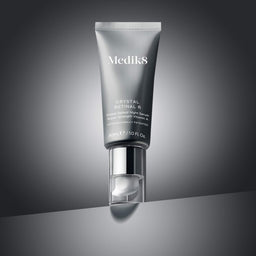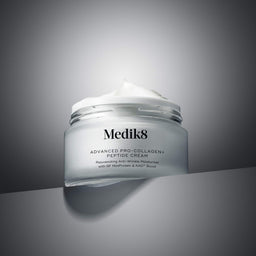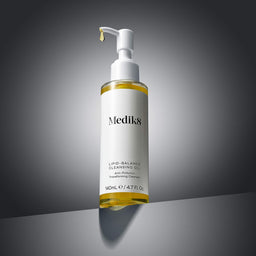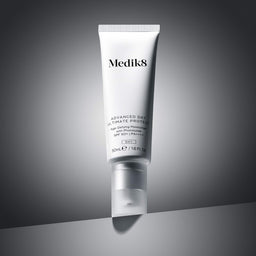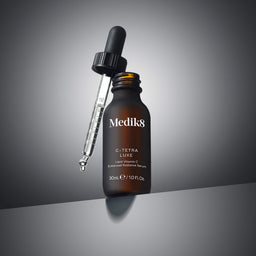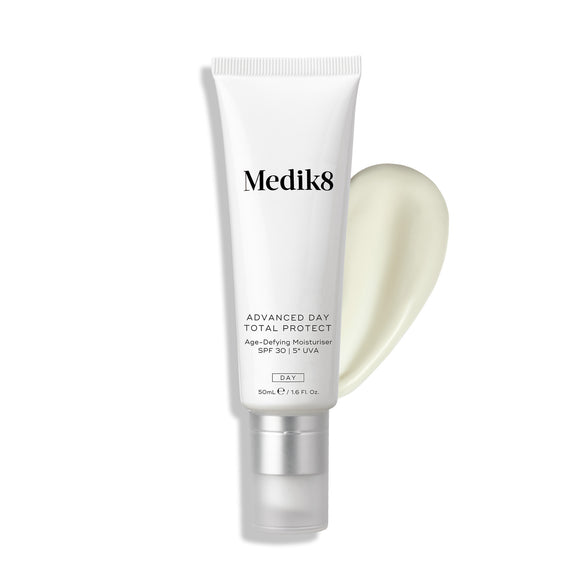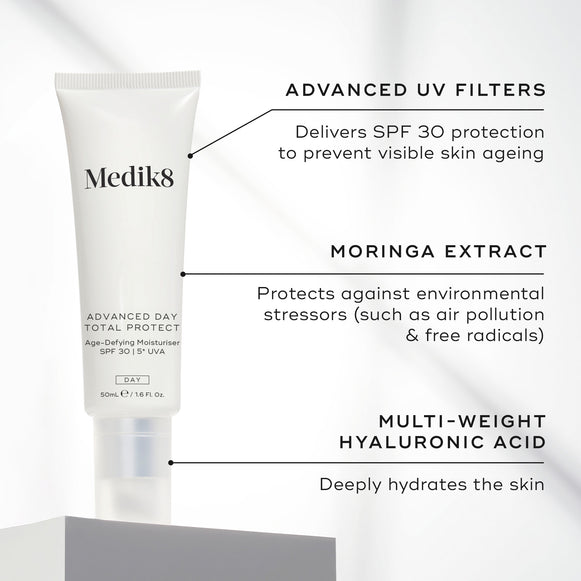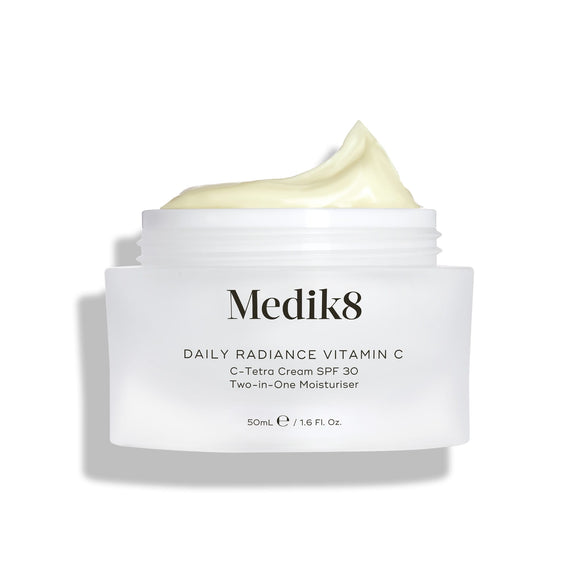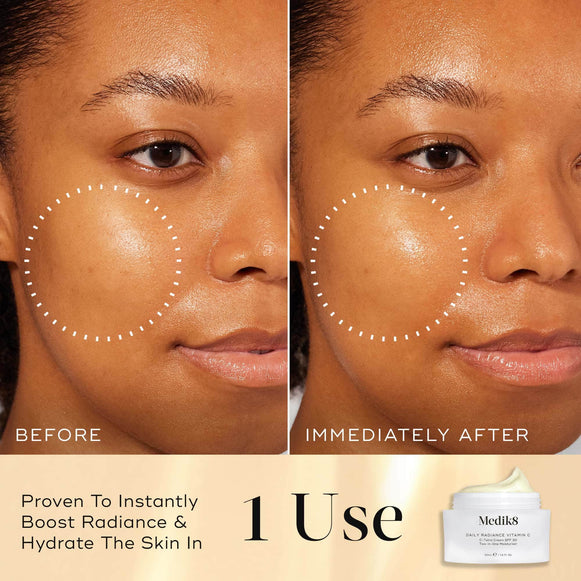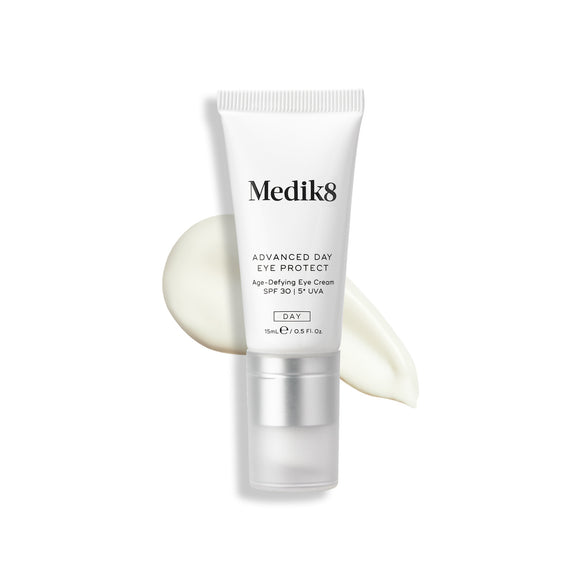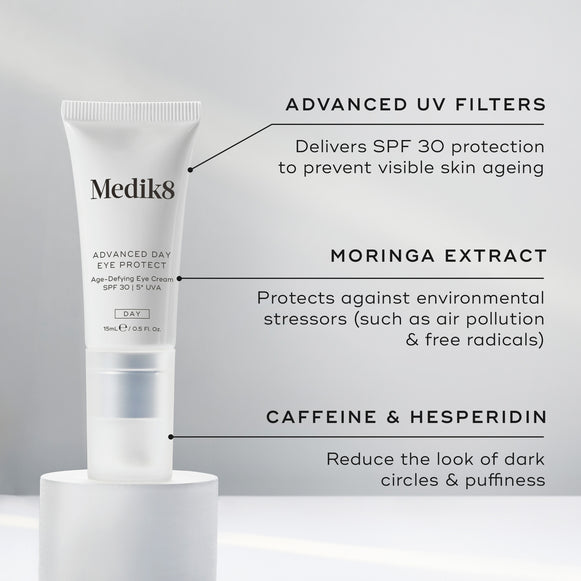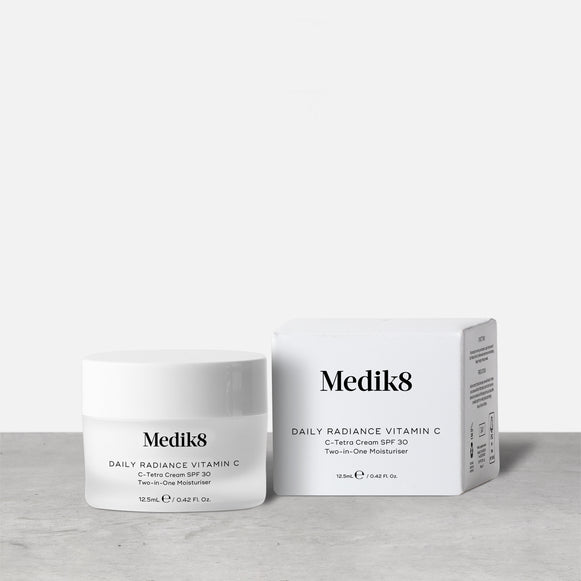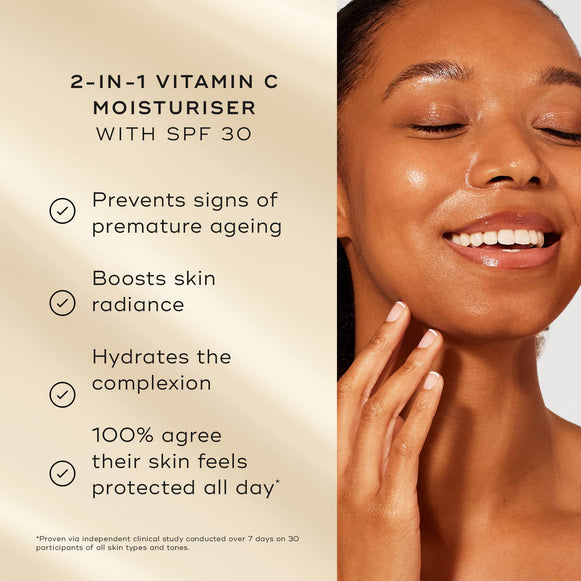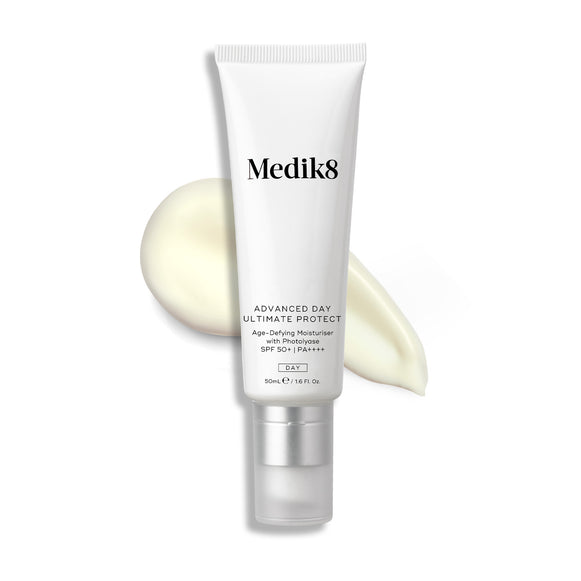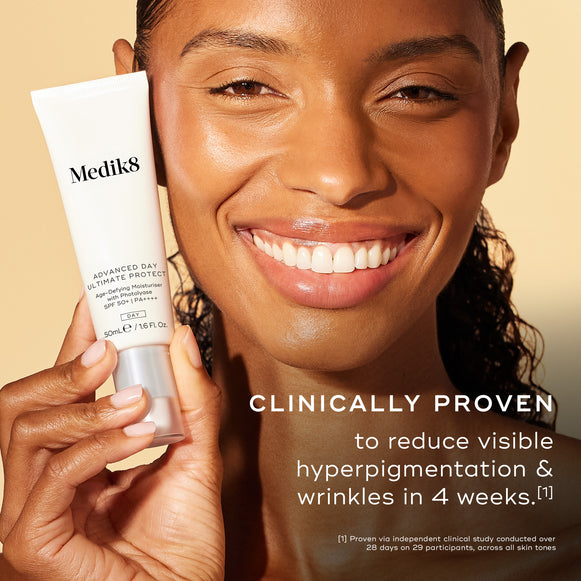Facial Sunscreen
It’s estimated that up to 80% of premature ageing is caused by the sun,[1] so daily sunscreen is essential for maintaining youthful-looking skin. Protect your skin with our advanced sun cream collection, featuring SPF 50 sunscreen options for optimal defense. Our sunscreen moisturisers use premium chemical sun filters for high-performance UVA and UVB protection, effectively shielding against sun-induced damage. Lightweight and non-greasy, each formula helps prevent visible signs of ageing while keeping skin hydrated and comfortable.
Frequently Asked Questions
PA is a rating system that indicates the level of protection a sunscreen offers against UVA rays which are the rays responsible for premature skin ageing. The more plus signs after PA (e.g. PA+, PA++, PA+++), the higher the UVA protection. At Medik8, we prioritise broad-spectrum protection in every SPF formula, helping to shield your skin from both UVA and UVB rays for daily defence against photoageing.
Consider your skin type, how much time you spend outdoors, and any added skin concerns. As a rule, everyone should use a minimum of SPF 30. For fair skin, or if you burn easily, opt for SPF 50 or higher. Those with deeper skin tones still need daily sun protection, and SPF 30 or above is recommended. For everyday wear, SPF 30 offers reliable protection. If you’ll be spending extended time outdoors, especially in strong sun or at high altitudes, SPF 50 or higher is advised.
For full coverage, use around a 10p-sized amount – roughly ¼ teaspoon – for your face and neck. Don’t forget areas like your ears, eyelids, and hairline. Not using enough product is one of the most common SPF mistakes, so be generous.
Mineral sunscreens (also known as physical sunscreens) use naturally derived filters like zinc oxide or titanium dioxide to sit on the skin’s surface and reflect UV rays. Chemical sunscreens absorb UV rays and convert them into heat, which is then released from the skin. Both types are effective, it comes down to personal preference and skin type. Medik8 uses advanced sunscreen technologies that blend seamlessly into the skin, with no greasy residue or white cast.
